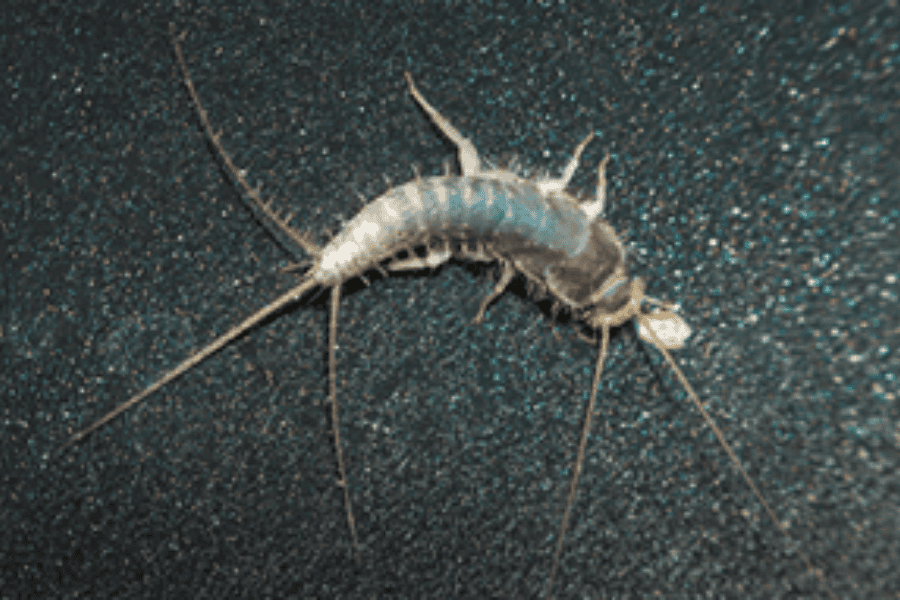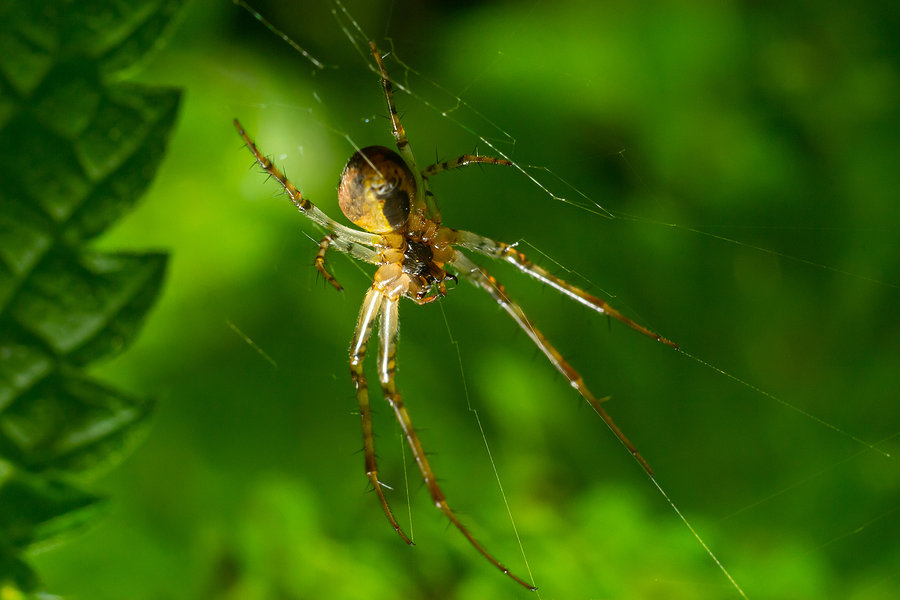READY TO GET STARTED?
REQUEST A FREE ESTIMATE
Fill out the form below or call (888) 466-7849 for a free, no-obligation estimate.

Pests are a common concern for Broward County homeowners, thanks to the area’s warm climate and lush surroundings. While traditional pest control often involves harsh chemicals, natural pest control methods offer a healthier, eco-friendly alternative. This guide covers effective strategies and natural solutions to help protect your home—without compromising your health or the environment.
The first step in natural pest control is prevention. By making your home less appealing to pests, you can reduce the likelihood of an infestation before it starts.
Pests don’t need an invitation to come inside. Small cracks, gaps, and holes in your home’s exterior are all they need to make their way in.
Pests are drawn to food crumbs, unsealed trash, and water sources. Maintaining a clean home is one of the simplest ways to keep them away.
Your yard plays a big role in pest prevention. By maintaining your outdoor spaces, you can limit the chances of pests venturing indoors.
Once your home is pest-resistant, you can add an extra layer of protection with natural repellents. These eco-friendly solutions deter pests without posing risks to your family or the environment.
Certain essential oils have strong smells that pests dislike.
Certain plants naturally repel pests when planted strategically in your yard or garden.
While DIY methods can help with light pest control, professional green pest control programs offer deeper and more reliable solutions. By working with an expert, you gain access to tailored treatments that target specific pest problems efficiently.
Many pest control companies in Broward proudly offer green pest management solutions, so look for one with a strong commitment to eco-friendly practices.
Broward homeowners have plenty of options when it comes to protecting their homes from pests in a healthy, sustainable way. By focusing on eco-friendly prevention methods, using natural repellents, and partnering with green pest control professionals, you can enjoy a pest-free home while protecting both your family’s health and the planet.

Summers in Bonita Springs bring warmth and outdoor fun, but they also invite summer pests like ants, mosquitoes, and rodents. Thankfully, you can manage these visitors using natural approaches that prioritize both your home and the environment. Follow these eco-friendly tips to enjoy a pest-free summer.
Ants are persistent, but reducing their appeal to your home is effective.
Planting mint or tansy near your home can also help discourage ants.
Mosquitoes thrive in humid summers, but you can reduce their activity.
Rodents look for food, water, and shelter during summer. Prevent their entry with these steps:
Nature offers its own solutions for pests through natural predators.
A thriving ecosystem can help keep pest populations in check while enhancing the beauty of your yard.
A clean home offers fewer opportunities for pests to linger.
Eco-friendly pest prevention protects your home while nurturing the environment. With strategies like eliminating entry points, planting natural deterrents, and fostering a balanced ecosystem, you can enjoy a comfortable Bonita Springs summer. A little preparation goes a long way towards ensuring your home is a haven for you, not pests, all season long. Find a professional pest control company near you for even more expert tips and a free comprehensive inspection and treatment plan.
Give us a call today or click the button below for a FREE green pest control quote!

In sunny Naples, Florida, keeping pests away can be a challenge. The region’s warm, humid climate attracts unwanted guests like ants, cockroaches, and mosquitoes. While professional pest control services are often considered, many eco-conscious homeowners are choosing natural, DIY methods to protect their homes without harming the environment. Chemical pesticides not only strain the planet but can also introduce toxic residues into your living space. This blog breaks down the benefits of natural pest control.
Before diving into solutions, here’s why natural pest control is the right choice:
Tradit ional pesticides contain chemicals that can be harmful to your family and pets. Natural methods, like essential oils and plant-based repellents, keep your home pest-free without exposing your loved ones to toxic substances.
Using natural pest control reduces your environmental footprint. Chemical pesticides can pollute water, air, and soil, harming essential insects like bees. Eco-friendly methods protect your home and contribute to a healthier environment.
DIY pest control often uses common household items like vinegar, citrus peels, and essential oils—making it an affordable way to tackle pests and save money.
Understanding the pests you’re dealing with helps you create targeted solutions. Here are the most common pests in Naples:
Prevent pests from entering by sealing gaps, cracks, and holes in doors, windows, and walls. Small measures like installing door sweeps and weather stripping go a long way in stopping infestations before they start.
A clean home discourages pests by eliminating food sources and hiding spots. Follow these steps:
Plant-based repellents and essential oils are effective at keeping pests away:
Incorporating pest-repelling plants in your garden is a natural way to keep pests away:
These plants not only repel pests but also beautify your garden.
Mosquitoes breed in stagnant water, so eliminating their breeding grounds is key:
Non-toxic traps can be an effective way to eliminate pests:
Maintaining a pest-free home without chemicals is possible and rewarding. Natural pest control methods protect your family and pets while promoting a healthier Florida environment. By adopting eco-friendly tips, you can transform your home into a haven that’s free of pests and committed to sustainable living. Ready to elevate your pest control efforts? Contact your Naples pest control experts now so you achieve a pest-free home the green way!

Silverfish are common pests in Florida’s humid climate, especially in areas like Pompano. While they don’t pose a direct threat to humans, they can cause significant damage to property by feeding on paper, fabrics, and stored food. Fortunately, natural pest control offers a non-toxic way to manage silverfish without harming your family or the environment.
Silverfish are small, nocturnal insects known for their silvery-gray, scaly bodies and fish-like movements. They thrive in damp, warm environments, making homes in bathrooms, kitchens and storage areas ideal hiding spots.
Traditional pest control methods often rely on harsh chemicals that can be harmful to humans, pets, and the environment. Green pest control, on the other hand, uses natural and less toxic methods to effectively manage pests without compromising health or the planet.
Silverfish thrive in moist environments. Use dehumidifiers, fix leaks, and ensure proper ventilation to reduce humidity in bathrooms and kitchens.
Prevent silverfish from entering your home by sealing cracks in walls, floors, and around windows and doors. Install mesh screens on vents to block outdoor access.
Regularly clean and organize your home to eliminate hiding spots for silverfish. Store books, papers, and clothing in airtight containers.
If you have a severe infestation, contact a local pest control company specializing in eco-friendly solutions. They can handle the problem without using harmful chemicals.
With natural pest control methods, you can effectively manage silverfish infestations without compromising the health of your family, pets, or the environment. If you’re ready to take action, contact a local green pest control service in Pompano to keep your home healthy and pest-free.

The thought of spiders in your home is enough to make anyone feel a little unsettled, but these household pests are actually beneficial to have around. They are a natural form of pest control, keeping other pest populations like mosquitoes and flies under control in and around your home. Although there are a few venomous spiders found in our area, most others are harmless and don’t pose a threat to you or your family. While it’s not realistic to expect to eliminate every spider from your home, you can make it less inviting for them to help keep them out without the use of harsh chemicals or pesticides. Here are 7 natural spider control remedies you can use around your home.
There are several plants you can place inside and outside your home to naturally deter spiders from coming around. Lavender, mint, eucalyptus, and citronella are known to deter spiders from building their webs near them. If incorporating these plants into your landscaping isn’t a possibility, you can also spray essential oils with these scents, in addition to peppermint or tea tree oil, anywhere spiders are a problem. You can also crush mint and place it in sachets inside your cabinets or other areas where spider activity is high.
Spiders are masters of hide and seek. They can be found hiding in cracks, crevices, cabinets, knotholes, behind baseboards, inside seldom used items in your home (such as shoes), under rocks, in woodpiles, and under piles of leaves and dirt. By getting rid of these hiding places you can encourage spiders to seek shelter somewhere besides in your home. Move leaves, grass clippings, compost and woodpiles away from your exterior walls. Dust and declutter your home on a regular basis. Frequently dust any areas where cobwebs appear. Organize your storage areas and get rid of any empty boxes.
Spiders spin webs to trap their prey as a food source. If you come across spider webs either inside or around your home, remove them as soon as possible. Eventually the spiders will move on and build their webs somewhere else.
While spiders aren’t attracted to your outdoor lights, other pests that they feed on are. Mosquitoes, flies, gnats, and other common prey for spiders are drawn to your outdoor lights, providing a literal buffet for a waiting spider. Keep your outdoor lights off as much as possible to help cut down on your outdoor pest populations.
Diatomaceous earth is a crumbly material made of the fossilized remains of an algae called diatom. DE can be sprinkled on the ground around your home and used as an insecticide. DE kills several pests in addition to spiders and can be used around your family and your pets.
There are some organic substances that work as natural repellents for spiders. Vinegar is a common one. The acetic acid in vinegar gives a sour taste and odor to spiders who come into contact with it. Mix equal portions of vinegar and water in a spray bottle and spray it around your home, especially in areas where pests may be getting inside. Citrus is also a natural spider deterrent. Keep citrus fruits in a bowl on your kitchen counter and use the leftover peels to rub onto your windowsills and doors to help keep spiders out.
Spiders can get in through the tiniest cracks and crevices in your home. Make sure to regularly inspect the exterior of your home and seal any places where pests might be gaining entry inside. Be sure to check doors and windowsills and use caulk or weatherstripping to seal any cracks and openings.
While most spiders don’t cause any problems in your home, they can become a nuisance, especially in your yard or garden. Webs can be built in inconvenient places; they can cover your plants or hide blooms, stunting their growth. If you have a problem with spiders or need some help getting them under control, contact your local pest control company for an evaluation.